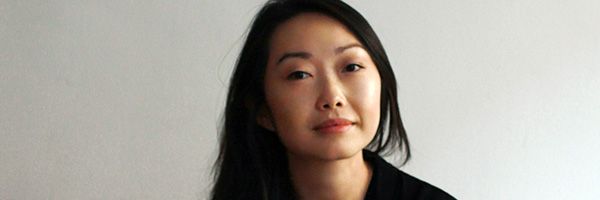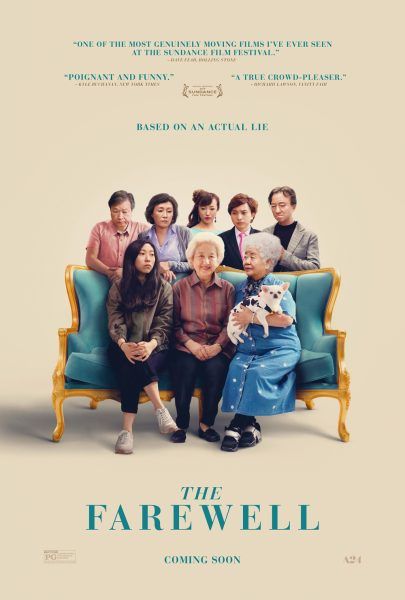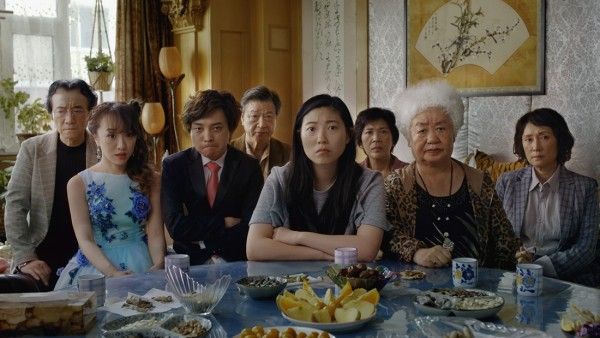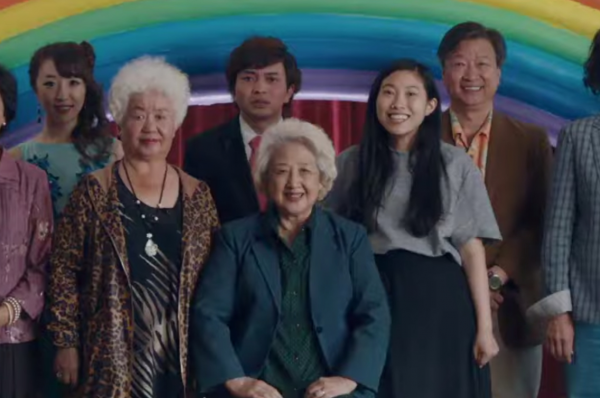Earlier this year, I interviewed writer-director Lulu Wang about her new movie The Farewell. The film, which is based on a true story, follows a family of Chinese-Americans who learn that their beloved matriarch has a terminal illness. However, they believe that if she knows, she’ll only spend her last months in grief, so they choose to lie about the illness and visit her in China under the guise of attending a relative’s wedding.
I caught the movie at Sundance in January and really enjoyed it, so I leaped at the opportunity to talk to Wang when she brought the film to the Atlanta Film Festival in April. During our conversation, we talked about the feedback she received from friends and family, how she crafted the family dynamic, casting the picture, the most challenging scene to film, the editing process, and more.
Check out the full interview below. The Farewell opens tomorrow in limited release.
This film premiered at Sundance, which is where I saw it and thought it was great. Now you get to be the opener of the Atlanta Film Festival. Can you talk a little bit about what that journey has been like taking the film on the festival circuit?
LULU WANG: This is actually our first festival since Sundance. I'm really excited because it's always hard to know how something plays outside of Sundance. I'm just excited for just for more people to see it. It's been pretty surreal because I guess you hope for the best, but you never know how people are going to receive it.
Did you have any sense of how it was developing when you did friends and family screenings and what you got from those?
WANG: There was definitely ... We did some early friends and family where the structure and pacing wasn't quite there yet. As we were still working on the rhythm of the film, people gave notes and just said, just make sure that no matter what you do to, quote unquote, "fix the movie" that you don't lose the magic. As I was continuing to cut the film, I kept trying to figure out, what is that magic? What are they responding to and how do I keep that while still at the same time making it a tighter movie?
At least for me, the magic seems to be the family dynamic and watching them all interact together. Was that something that you zoned in on or did you find another aspect that really leaped out at you?
WANG: I think it was definitely the family dynamics and as well as we let a lot of scenes just play out without any heavy editing or putting too much of a facade around it through, whether it was editing or music or anything like that. Keeping some of those awkward moments that are just long, really long, and allowing it to be slightly uncomfortable.
Can you talk a little bit about the casting of this film and finding the family here? The chemistry just feels really great and lived in, and I was just curious how you got to that.
WANG: I based it around my family, not so much in they have to look like that person but more in terms of their essence. We cast Awkwafina because I felt like she could bring a natural comedy to the film. She has a real sense of comedic timing and levity that it doesn't need a lot. Just sprinkled throughout you get the comedy of it. But at the same time she brought the pathos. Everyone else, as we cast, I just wanted them to feel really real, like people that I knew, both in terms of language, whatever accent they might have. I think that just the authenticity of it, if I spent time with that person, if they felt like they are somebody that would be a member of my family or is like a member of the family of somebody that I know who's Chinese American.
One of the things that I really liked about this movie is it draws you in to the different cultural approaches to grief. I was curious, how did you construct that? How did you want to make sure that came across in the film?
WANG: I think, for me, I've always responded to black comedy. In my own life, I often see that juxtaposition of a really sad situation but ways in which grief can also be ridiculous and rituals in general could be ridiculous. The comedy was important to me, but also making sure that it wasn't a comedy where we're poking fun at anyone or their traditions. But more in setting up a scenario, and through that scenario, that situational comedy, you're creating that juxtaposition of this slightly absurd situation, but a real person trying to navigate their way through it.
Did you ever find the film was leaning too far in one direction or the other where it's becoming a little too comic, or it's becoming a little too heavy? How did you strike that balance?
WANG: I worked with all of the actors to find the tone, but especially with Awkwafina and with Mrs. Zhao, who plays the grandmother, because I think with Awkwafina's background in comedy I would have to pull her a little bit away from the comedy. With Zhao, she is a very famous soap opera star, and so sometimes her performances were a little bigger because she wanted to honor my relationship with my grandmother. Knowing that she was playing my real grandmother, she wanted her to be very sweet and wanted to show what a great person she was. In fact, I said, "No. Don't do that. I want you to be really tough," and it's not who she is in real life. She herself is a grandmother, and so she of course brings her own experiences of what it means to be a grandma. I would say, "Actually, this is the character," and I would pull her towards a grandma that was a lot more of a bossy matriarch. That was a way to not make the story too saccharin as well because I really wanted to stay away from anything that was overly sentimental.
Because the cast interacts so well together. Did you guys have rehearsal time or was this something where you just had to find it as you were filming?
WANG: We pretty much found it as we were filming. We had very little rehearsal time. When we did a little bit of rehearsing, it was mostly for camera blocking, because we had a lot at Warner's. We had a very tight schedule with a very big ensemble cast. Trying to fit all of them in frame and make it look good, we did need to choreograph that a bit. I also didn't want to over rehearse the actors in which they ... Sometimes you can suck the energy out that way. I just told them to spend time together as much as possible. We were all staying in one hotel, so we said, "Go get breakfast together. Go shopping together." The woman, Zhao who played Grandma, I had her spend a lot of time with my real great aunt, who's in the movie. She plays herself in the film, but she also went through this experience in real life. I felt that was the best kind of rehearsal in many ways, was just integrating my real family with the actors playing them and allowing them to get to know each other better.
When it comes time to start filming, are you someone who knows exactly what you want in the shots that you want or is it something more organic where you want to do a lot of takes and have a lot of coverage to find it later in the editing room?
WANG: I'm definitely not someone who normally likes to do a lot of coverage. But I think it's a combination of the two things that you said, which is that my philosophy is to go in with a really strong plan but always be ready to throw that plan out the window if there's some kind of a magic or kismet thing that happens. You have to be willing to go with it, go with that flow. But because we had such a tight schedule on this project and we really ... My cinematographer, Anna Franquesa Solano, and I wanted to make sure that we were making an artistic film still, even with the short time that we had. In those situations, you often have to make a choice. You either go the safer way and just get a lot of coverage and then figure it out in the editing room, or you take a risk and you say, "We're going to push to do this oner and it may or may not work. We're hoping it does." You only have the time to do one or the other, and we wanted to do the latter.
It was often a lot of takes because, to choreograph the camera with the actors and everything, the light shuts off in the middle of the shot so you have to start from the beginning. We would shoot entire scenes from beginning to end. Sometimes that gets frustrating and you may want to be like, "Let's just forget it. Before we run out of time, let's just get the coverage." And it was challenging to push myself to not go the safer route.
Was there any particular scene that you found challenging or that you were worrying that it might not turn out the way you hoped?
WANG: I would say there's one scene where it's just Grandma and Billi having a conversation in a room. That was probably the most challenging scene to shoot. I think when you're watching a film you wouldn't necessarily think two people in a room would be the hardest scene to shoot. But it's challenging as a director because it's two people in a room. How do you make that interesting? So much of it relies on the acting, the performances, but also it's a white room. How do you not make it look flat? How do you make sure that it ... It's one of the scenes where we did have coverage, and how do you make ... But because throughout the movie that's not our style to do these closeups and coverage, to then go into it feels ... It didn't feel of the same cinematic language.
As Anna and I were shooting, I actually said, "Can we just stop for a second?" Because I was looking at her and feeling the energy. I was like, "I don't think it's working." She was like, "Thank God. I didn't want to say anything. We don't have any time left." We had to stop and reassess how we were approaching the scene. It's just difficult because the actors are like, "What? We can't use those takes?" You have to tell everybody to hold on while you go and figure it out. And we did. We had to stop and say the plan we came in with wasn't working. That was really challenging to figure out how it was going to edit.
There was another scene where everyone's talking on a bed, the three people. The way that we shot it as a triangle, it was never a single. It was over the shoulder of two people. We weren't sure how that was going to cut together. I had to really rely on my editor to say, "Do you think it's going to work?" Then you get in the editing room and some of it works and some of it doesn't. But it was a challenging movie because we couldn't go back to do re-shoots because of where we shot it. Everyone came from all over the globe into Changchun so there was no way we would go back if something didn't work.
Were there challenges in the editing room because you have scenes where you have six characters and you're trying to make sure that everyone gets their moment? Can you talk a little bit about trying to cut those scenes together and making sure that they flow naturally and each character gets the attention they deserve?
WANG: I think, for the most part, a lot of the scenes, because we just did them in a wide or in ... I guess I wasn't necessarily thinking, how does each character get their turn, but more like, even going into it, you have all of these characters. But for me the main character in the movie is the family as a unit. The family is the character. There's Billi, there's Grandma, and then there's the family. We approached that through the cinematography as well where, how do you capture both the love, the joy, but also the pressure, the doom of her feeling like it's her as the black sheep against the entire family, which is also symbolic of the entire society.
The scene I was thinking of in particular that I thought was really well done was the dinner scene at the round table where it's the pressure of one. It's like, "Why aren't you doing this?" It becomes competitive within the context of the conversation.
WANG: It's funny you mention that, because that was one of the most difficult scenes to edit because it was a scene where we did have coverage and you see every ... Although not singles. It was always three people. That presented challenges in terms of how you could cut. Just building out the dynamics of that, because it's a scene where Billi doesn't say a lot but it is about her, and trying to find the dynamics of this cat-and-mouse, this tennis game between Mom, who now lives in America, and Gugu, the aunt, who lives in China. Then also Grandma's being there as well, and then the awkward bride and groom. All those layers of dynamics definitely made it challenging to figure out how to cut.




